This week’s brand highlight is with the founder of Bottles to Beads. Bottles to Beads is a wonderful company that helps empower women while working to save the environment with up-cycling. What I love about this company is how they took a problem and made something beautiful out of it. Check out my interview with Marie Ange Holmgren Sylvain below…
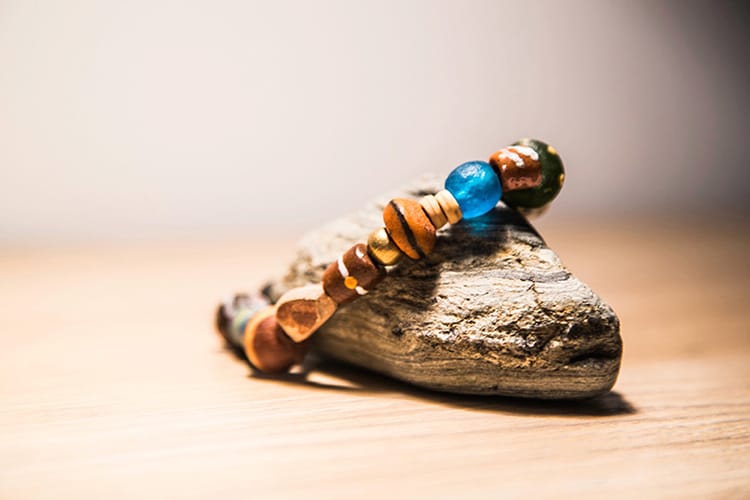
Tell me a little about yourself…
I am Marie Ange Holmgren Sylvain, the founder of Bottles to Beads. I am from Haiti. Whenever I have time I travel, take photographs and observe people’s lives, play a musical instrument. My latest passion is learning to play the hand drum.
What is your brand called and why did you name it that?
Our brand is called Bottles to Beads because we turn discarded glass bottles into beautiful beads.
What does Bottles to Beads make?
Bottles to Beads is an ethical business that trains village women to create glass beads. We upcycle glass bottles that litter the tracks of Nepal to glass beads and small glass items. Each of our items are personalized art pieces from the artists.
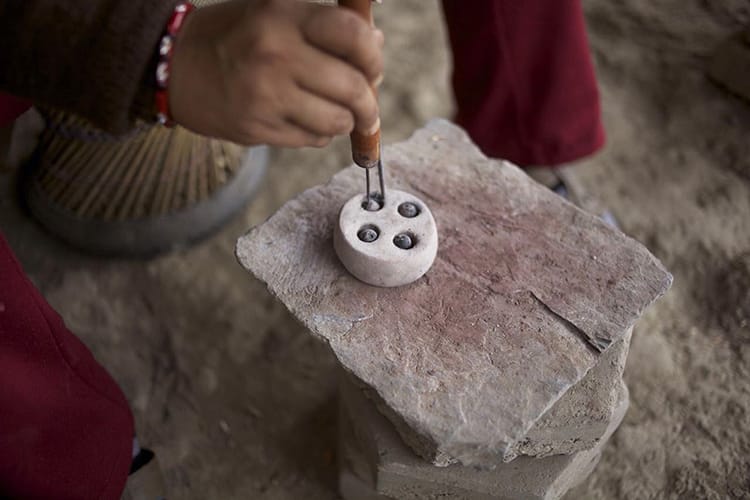
What inspired you to come up with Bottles to Beads?
Beads were the first currency between humans. They have been used forever in many parts of human activities, as objects of adornment, trade, prayers or play. Everyone understands a little object with 2 holes. In this sense a bead is a bridge between people, a sort of language.
I saw in many countries in Africa people making their own beads from glass bottles and windows. In Nepal, women make beautiful jewelry by using beads they buy. On the other hand, I saw that glass was not being recycled and they litter village tracks hurting people and animals. So, I decided to try to give women an opportunity to make their own beads for their jewelry, to have an income and a skill
I created this project, Bottles to Beads, reaching out to women from remote villages. We give them workshops so they can learn how to make beads out of glass bottles and also, so they pass their skill to other women in their villages. This way they have a way to earn, and littered glass bottles are also up-cycled.
The project is now managed by the ladies who first took the training. All the revenues go to them and they in turn train the women who come.
How are the beads produced?
The beads are produced in our workshop, and in homes in various villages. The tools used to create our products are made by women using everyday objects. We wanted them to be able to make their own tools because villages don’t necessarily have modern tools. The process of making these beads is sustainable, from scratch to the complete product, everything is made from what is already there. We use discarded glass bottles, tools made of stone, wood, and mud, a self-made oven, fire, and self-made bead molds.
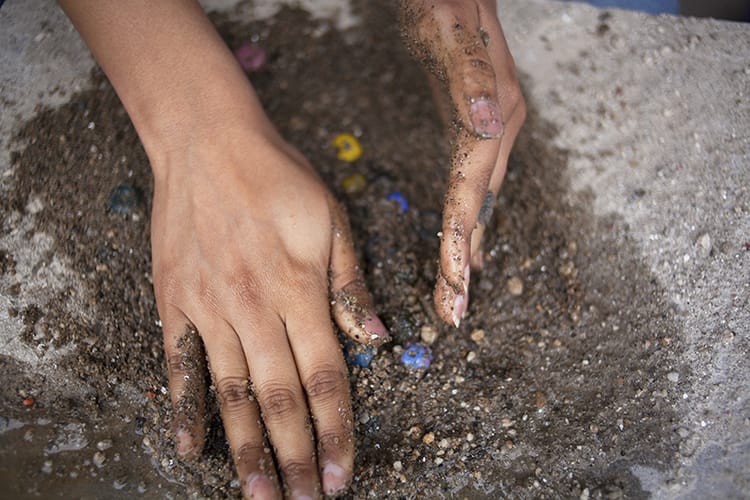
What makes your products unique?
The charm in our handmade products is the imperfections. Every bead carries the stories of the women who crafted it. They are not just recycled products, but a tool of transformation towards a world with empowered women creating a better environment to live in.
What is the price range of your items?
Our products are priced from Rs.800 ($8 USD) to Rs.9,000 ($90 USD).
How many people do you currently employ in Nepal?
We have 4 women working in our workshop based in Sanepa, Lalitpur, and we have women who work from their homes from different remote villages in Nepal.
Where can we purchase your items?
We currently have our products at two stores in Nepal and several stores in Sweden and Germany. In Nepal, we can find them at:
Image Ark – Kulimha Tole, near Patan Durbar Square, Lalitpur (open from 10:00am to 5:00pm).
Timro Concept Store – Bakhundole, Lalitpur (open from 10:30am to 6:00pm).
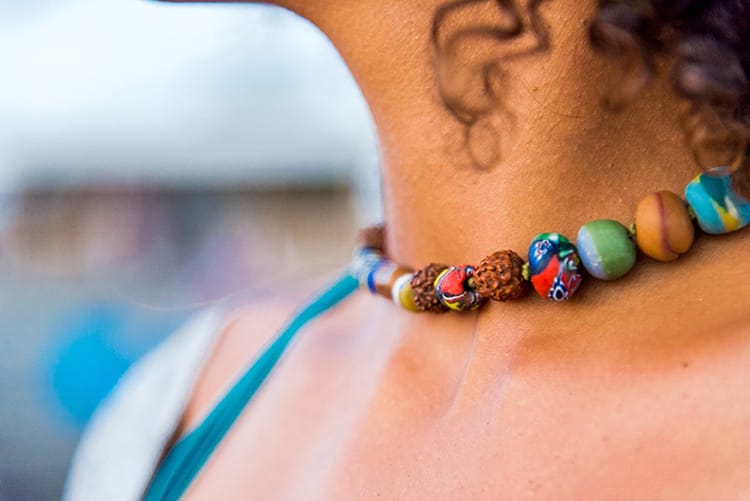
What does the future hold for Bottles to Beads?
The ladies would like to conduct more trainings in the villages. It is hard for women to spend the time necessary to learn in Kathmandu as they have families and farms to look after in their villages. If we could offer the training in the villages, more women could be trained and be empowered by this new skill. So, the priority now is to find a team that can spend time in the villages.
What is the best part of owning your company?
I love to see the women working together as sisters. There is an intimacy that is created when you make beads. They speak in low voices and spend the day together sharing their lives and their secrets. They bond like only women can. It is very therapeutic.
The workshop is like a little haven. It is in a garden, surrounded by fruit trees.
It is labor intensive, meticulous work. It needs concentration, timing and a little bit of stamina. It takes a whole day to make a bead. I love to see their eyes when they admire the beads. You never know exactly how the beads come out of the kiln, colors and shapes change.
Through Bottles to Beads, we are able to provide women in remote mountain villages of Nepal with skills, a source for income while taking a step forward for a cleaner environment. The best part of owning this project is knowing that I play a part in helping women earn their dignity, who can further bring necessary change in their society, empowering them is like sowing seeds for better lives for generations to come.
For me, the best part is I was able to create it, I can step back and let the ladies run the show!
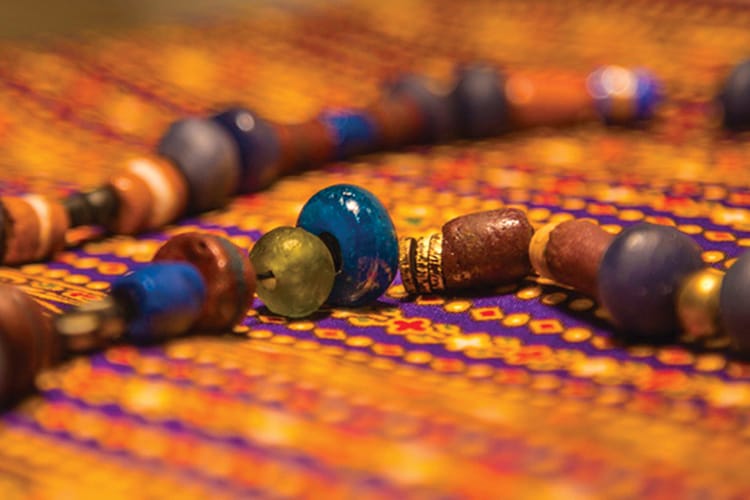
Follow Bottles to Beads on Social Media…
Instagram: bottlestobeads
Facebook: bottlestobeads
You might also like…

Michelle Della Giovanna
Writer at Full Time Explorer
I’m just your average New Yorker who quit her job in the fashion industry to explore the world. Come find out what it’s like to trade in five-inch heels for squat toilets.
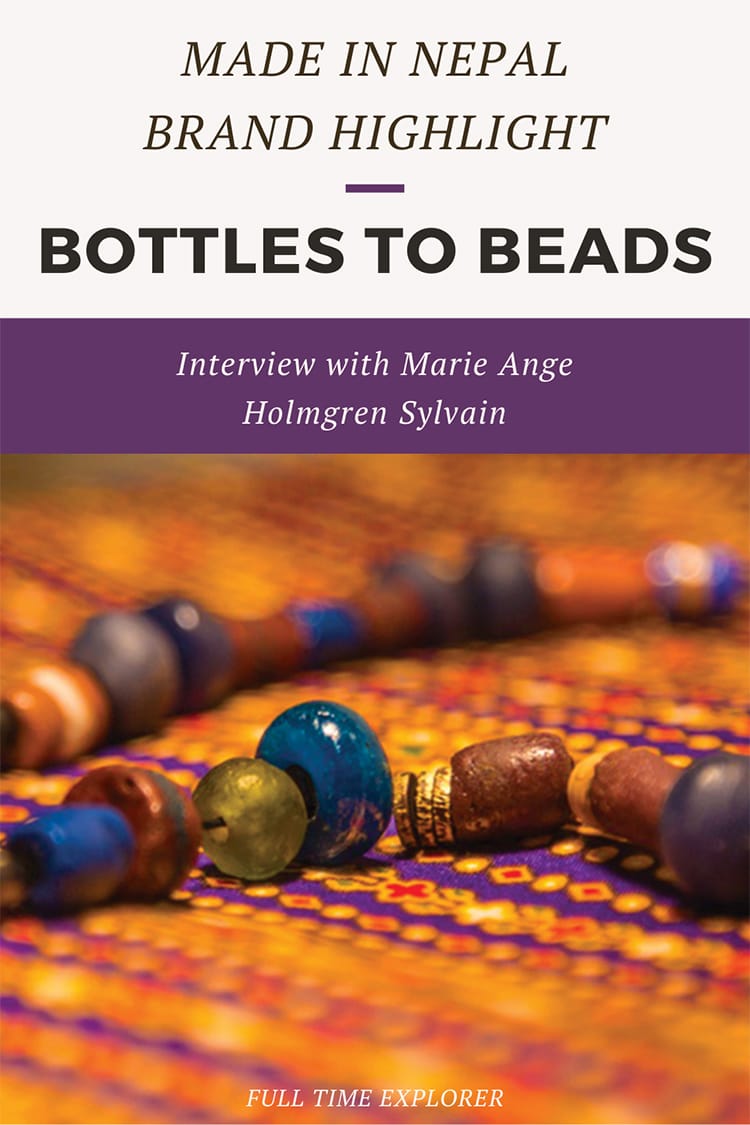
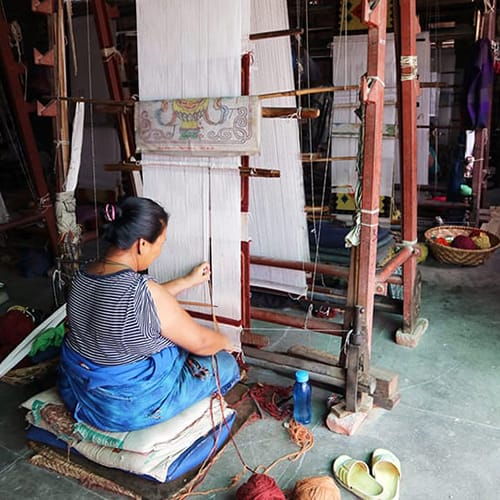
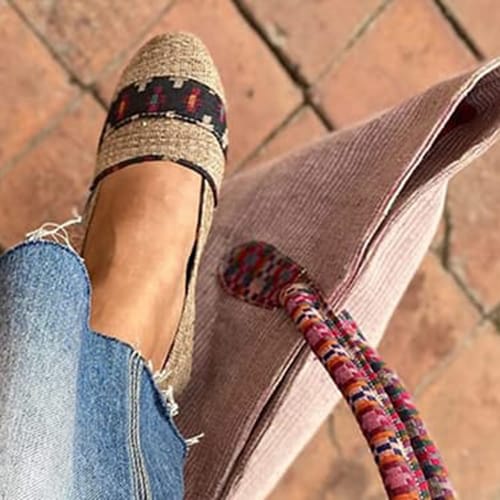
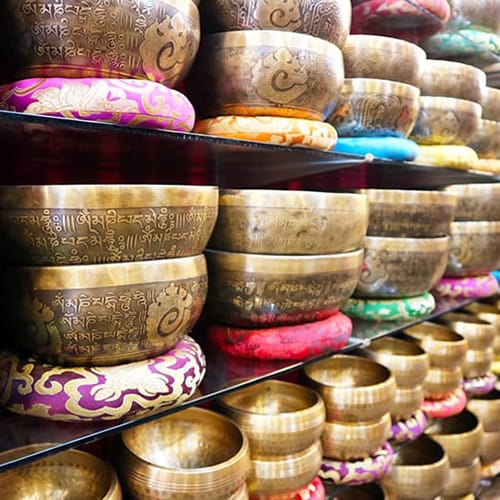
Leave a Reply